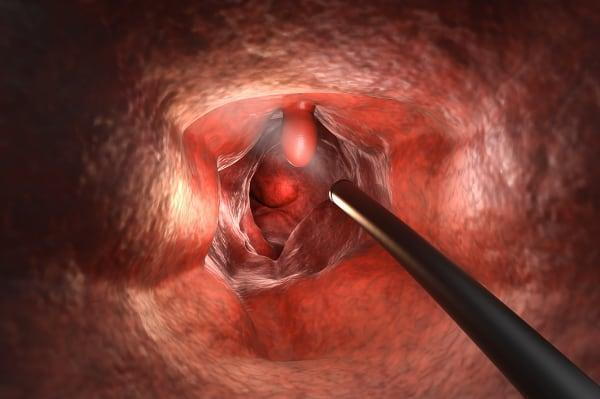
If your parents, siblings, or kids have been diagnosed with colorectal cancer, it’s important for you to be screened- regardless of your age.
Recent studies show that first-degree relatives of patients with colorectal cancer or advanced colorectal polyps:
- Are at a higher risk for advanced colorectal polyps and colorectal cancer themselves
- May require more frequent testing or screening
- Should be in close communications with their doctor
What are polyps?
While they typically don’t cause symptoms, polyps are growths on the inside walls of the colon that protrude into the colon passageway. Polyps range in size from a small dot to several inches. Men tend to develop them more than women. We know that most colorectal cancers come from polyps. So, if polyps are found and removed before they become cancerous, about 75-90 percent of cases of colorectal cancer can be prevented.
It is possible to experience some signs of polyps, particularly if the polyps are located on the rectum. Some symptoms of colonic polyps to be mindful of include:
- Blood on toilet paper after wiping
- Blood in the stool
- Pain, constipation, or diarrhea that lasts upward of a week
- Nausea and vomiting
These symptoms can point to a number of different causes, so to be sure, it’s important to visit your doctor.
Lifestyle Changes and other identifiers:
There are certain conditions and even lifestyle choices that may increase the risk of polyps or colon cancer. These include smoking and overconsumption of red meat (particularly in women).
If you have diabetes, are overweight, or have other bowel diseases like Crohn’s disease, ulcerative colitis, or inflammatory bowel disease you may be at higher risk to develop colon cancer.
How Are Polyps Treated?
A colonoscopy is the most effective way to identify and remove polyps. In most cases, colonic polyps are easily removed during a colonoscopy by performing a procedure known as polypectomy. In some cases, larger polyps cannot be removed with the colonoscope, and surgery must be scheduled.
If you have any type of colonic polyps, you will need to follow up with your doctor after removal. The frequency of regular follow up and repeat colonoscopy is determined based on the type and number of polyps you are found to have.
Schedule an appointment
If you need more information about colonic polyps, colon cancer, or to discuss your family history regarding screening, simply request an appointment with GI Associates.
